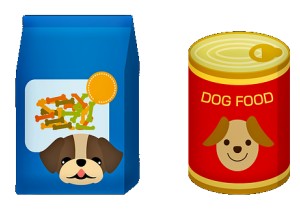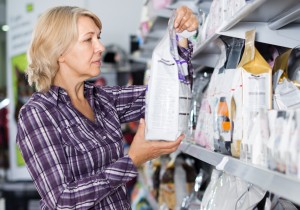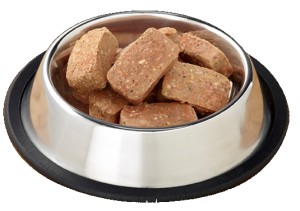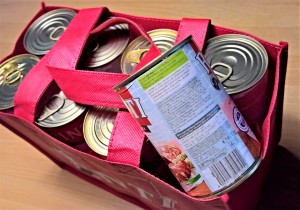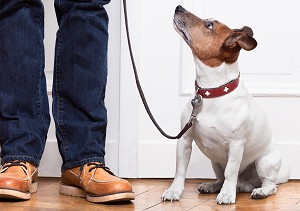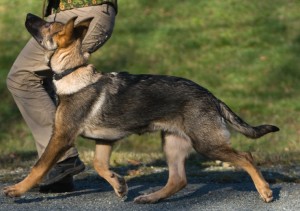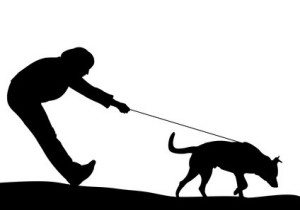Is Your Dog's Food Safe? Concerns About Pet Food Recalls
By Michele Welton, Dog Trainer, Breed Selection Consultant, Author of 15 Dog Books
3 Best Ways To Feed Your Dog Healthy Food
What Every Puppy Owner Should Know About Feeding
A Quick Way to Make Homemade Dog Food
Pros and Cons of Raw vs Cooked
What Makes a Dog Food Good – or Awful
Truth and Lies on Dog Food Packages
5 Best Kibble and Canned Dog Foods
→ Is Your Dog's Food Safe?
5 Reasons Not To Feed Your Dog Grains
Two Shocking Reasons Vets Recommend Kibble and Canned Dog Food
How To Tell If Your Dog Is Overweight – And What To Do About It
You've probably heard about pet food recalls, where manufacturers are forced to recall their kibble or canned food because it's contaminated with something dangerous.
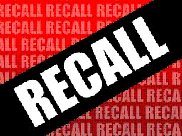
An ongoing series of pet food recalls has shocked owners into taking a second look at their pet's food.
Often it's for bacteria (e.coli or salmonella), but sometimes it's for strange things that you wouldn't think could happen if these companies were really serious about quality control.
For example, in December 2018, the FDA issued a warning to pet owners that numerous dog food brands, including Hill's Science Diet available from veterinarians, contained dangerously high levels of vitamin D, which can cause kidney failure and death.... which sadly it already had.
Hill's Science Diet... Abound... Evolve... Triumph.... Nutrisca.... Natural Life.... Sportsman's Pride.... ANF... Nature's Promise... all recalled for vitamin D toxicity.
In the same month, Columbia River Pet Food was recalled for listeria contamination.
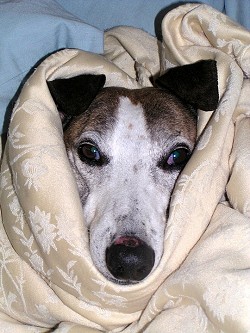
No one wants to be responsible for feeding their beloved pet something that will cause sickness or worse.
Over the past 15 years, millions of pet food products have been recalled, including "famous" names like Hill's Science Diet, Purina, Iams, Eukanuba, Solid Gold, Stella & Chewy's, Wellness, Wysong, Canidae, Innova, EVO, California Natural, Blue Buffalo, Royal Canin, Merrick, PetSmart, Nutro, Alpo, Mighty Dog, Breeder's Choice, Diamond, Bil-Jac, Natural Balance, Pedigree, and more.
Dog foods can be contaminated with bacteria (e-coli, salmonella, listeria), sharp shards of bone, or foreign material (like bits of plastic).
In one gigantic recall, an industrial chemical called melamine made its way into millions of dog food products via a cheap supplier from China.
Over 3000 dogs and cats died, and over 14,000 were sickened with life-threatening kidney disease.
 Grieving owners demanded answers. How could so many different brands get contaminated with the same thing?
Grieving owners demanded answers. How could so many different brands get contaminated with the same thing?
The answer turned out to be that those "different" dog food brands were not so different.
Many pet foods, it turns out, are assembled on the same central assembly lines – using the same ingredients from the same sources.
In fact, a huge number of canned dog foods are made by just one company, whose name you would never recognize. This one company makes the food for many familiar brand names.
So when one thing goes wrong at the central plant, hundreds of brands and millions of bags and cans of food can be affected.
And things do go wrong. Most dog food brands, you see, are owned by mega-corporations such as Proctor & Gamble and Colgate-Palmolive. Giant corporations have the reputation of focusing relentlessly on their bottom line – squeezing every last cent of profit from every bag and can.
So they need cheap ingredients. And the cheapest ingredients come from foreign countries whose food safety practices are (at best) suspect and (at worst) nil. China is a major offender here.
This might shock you, but pet foods are not covered by the U.S. government's food safety laws. The FDA doesn't consider pet food to be food – it's feed, just like livestock feed, which also isn't protected by safety laws.
Needless to say, the manufacturers of livestock feed and pet feed are very happy with this.
It means they can gather up any kind of (horrible) ingredients from all over the world, truck it into gigantic food processing warehouses, and shovel it together into huge steaming vats. Let me tell you, it's gross.
So if you feed your dog any brand that comes off these assembly lines, there's no way you can know if it's safe. And most brands come off those lines.
Of course, the argument can be made that if you feed homemade, your meat and veggies from the supermarket might also be contaminated. While that's true, there are FAR more inspections, regulations, and safety laws protecting human-grade food.
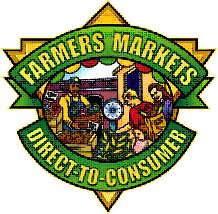
And if you feed homemade, you can increase safety even more by skipping the supermarket and buying your ingredients from local sources who are farming organically and raising grass-fed livestock and free-range poultry.
Using local sources means fewer chances for things to go wrong. And if something does, it's not going to be a deadly industrial chemical from China that's supposed to be in plastics and countertops, not in millions of cans of dog food.
Summary:
When anyone else makes your dog's food, you have little or no control over its safety. This is especially true when the food is made with feed-grade ingredients (rather than human-grade) from livestock raised inhumanely (instead of pasture-raised, grass-fed, free-range).
See What Makes a Dog Food Good – or Awful
MORE ABOUT FEEDING
HONEST ADVICE ABOUT TRAINING
My best-selling books – now available FREE on my website
 Respect Training For Puppies: 30 seconds to a calm, polite, well-behaved puppy is for puppies 2 to 18 months old. Your puppy will learn the 21 skills that all family dogs need to know. Click here to read for free.
Respect Training For Puppies: 30 seconds to a calm, polite, well-behaved puppy is for puppies 2 to 18 months old. Your puppy will learn the 21 skills that all family dogs need to know. Click here to read for free. Teach Your Dog 100 English Words is a unique Vocabulary and Respect Training Program that will teach your adult dog to listen to you and do what you say. Click here to read for free.
Teach Your Dog 100 English Words is a unique Vocabulary and Respect Training Program that will teach your adult dog to listen to you and do what you say. Click here to read for free. 11 Things You Must Do Right To Keep Your Dog Healthy and Happy helps your dog live a longer, healthier life. Get my honest advice about all 11 Things before you bring home your new puppy, because some mistakes with early health care cannot be undone. Click here to read for free.
11 Things You Must Do Right To Keep Your Dog Healthy and Happy helps your dog live a longer, healthier life. Get my honest advice about all 11 Things before you bring home your new puppy, because some mistakes with early health care cannot be undone. Click here to read for free.

